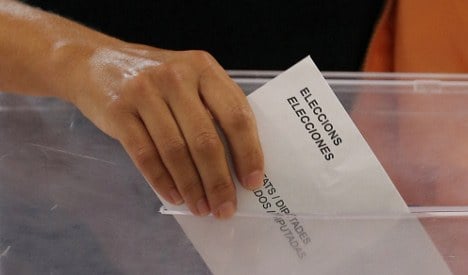Spain was united in urging Britain to vote to remain in the European Union. Now there are ripples of fear that Brexit could derail the country’s fragile economic recovery.
Spain – the euro region’s forth-biggest economy – is heavily invested in the UK as well as being one of the UK’s primary destinations for foreign investment. Spain benefits hugely from the money brought into the country by British tourists, but as the pound plummets, British spending in Spain looks set to similarly plunge.
Spain’s IBEX plunged 12 percent on Friday morning, as the euro fell to its lowest point since it was introduced in 1999. Shares in Spain’s biggest banks similarly plummeted after the vote for Brexit was confirmed.
All of these fears combine just two days before Spain’s general election and could have a profound effect on how Spaniards vote on Sunday.
Acting Prime Minister Mariano Rajoy on Friday said that a few years ago “an event of this size could have tipped Spain into crisis or meant it needed bailing out,” but now – in reference to Sunday’s election – “is not a time to add uncertainty” to the situation.
#España tiene ahora sólidas bases económicas para soportar las turbulencias financieras que pueda provocar el #Brexit. Estamos preparados
— Mariano Rajoy Brey (@marianorajoy) June 24, 2016
“Spain now has solid economic foundations to bear the financial turbulences provoked by Brexit. We are prepared,” Spain's acting Prime Minister Mariano Rajoy wrote on Twitter.
The fear of uncertainty – worsened by Friday’s Brexit vote – could encourage Spanish voters to stick with what they know and vote for the conservative Popular Party (PP), who steered the country out of economic crisis after taking power in 2011.
The PP, as Rajoy has been arguing throughout the campaign, is a safe pair of hands. Perhaps Spaniards will be more likely to believe him after Friday’s political earthquake in the UK.
The PP won the most votes in December but failed to reach an absolute majority, resulting in months of fruitless negotiations and led to Sunday’s second general election.
The PP have campaigned hard on their economic record; they have helped Spain out of economic crisis but by imposing harsh austerity measures that were severely criticised by opposition parties.
The polls put the PP in first place, but again, without enough seats to form an absolute majority.
Left-wing newcomers Podemos are vying with the established traditional opposition, the Socialists (PSOE) for second place.
Podemos, who were allied with Greece’s Syriza, have campaigned for change. But they are, in many respects, an unknown on which – after Friday’s Brexit vote – many Spaniards may be unwilling to gamble.




 Please whitelist us to continue reading.
Please whitelist us to continue reading.
Member comments